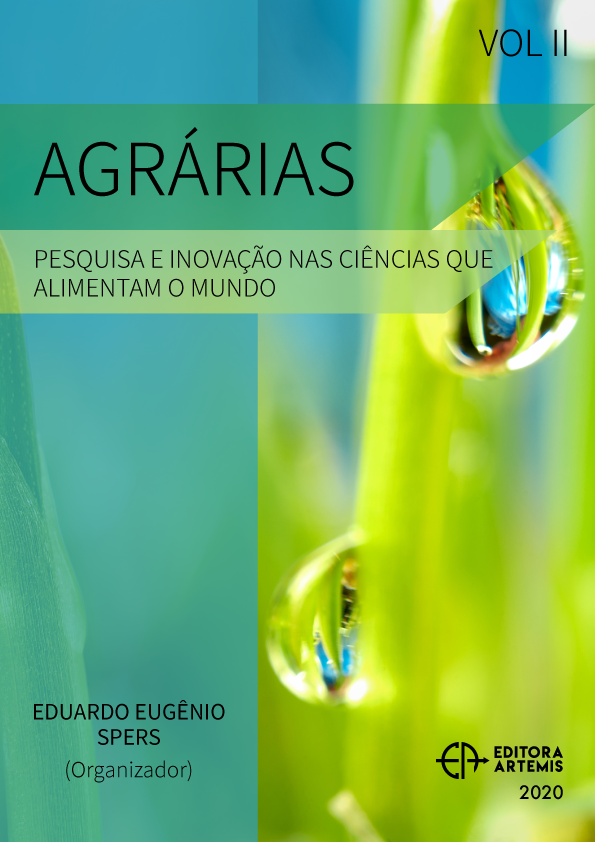
REAPROVEITAMENTO DE ÁGUA RESIDUÁRIA DE SUINOCULTURA NO DESENVOLVIMENTO DE PASTAGEM DE UROCHLOA DECUMBENS
O objetivo do presente trabalho foi determinar a dose adequada de água residuária de suinocultura (ARS) para proporcionar aumento dos teores de nutrientes, em diferentes profundidades sem causar contaminação do lençol freático. O experimento foi instalado e conduzido na Fazenda Bonsucesso, localizada no município de Uberlândia-MG. O delineamento utilizado foi em blocos casualizados com quatro repetições. Os tratamentos avaliados foram cinco doses (0, 200, 400, 600 e 800 m³ ha-1 ano-1) de ARS. Coletou-se amostras de solo para a determinação do pH em H2O, alumínio, fósforo, potássio, cálcio, magnésio, enxofre, cobre e zinco. Conclui-se que a aplicação de água residuária de suinocultura não afeta os teores de nutrientes no solo, não sendo possível determinar a melhor dose. Porém reduz o pH, aumenta o teor de Al3+ do solo e ainda reduz os teores de P, Mg, Mn, Na, K e Fe com o aumento da profundidade.
REAPROVEITAMENTO DE ÁGUA RESIDUÁRIA DE SUINOCULTURA NO DESENVOLVIMENTO DE PASTAGEM DE UROCHLOA DECUMBENS
-
DOI: 10.37572/EdArt_07101072011
-
Palavras-chave: dejetos de suínos; acidez do solo; fertirrigação; gramíneas.
-
Keywords: swine dejects; soil acidity; fertigation; grasses.
-
Abstract:
The objective of the present study was to determine the appropriate dose of swine wastewater (ARS) to provide increased levels of nutrients, at different depths without causing contamination of the water table. The experiment was installed and conducted at Bonsucesso Farm, located in the city of Uberlândia-MG. The design used was in randomized blocks with four replications. The treatments evaluated were five doses (0, 200, 400, 600 and 800 m³ ha-1 year-1) of ARS. Soil samples were collected to determine the pH in H2O, aluminum, phosphorus, potassium, calcium, magnesium, sulfur, copper and zinc. It is concluded that the application of swine wastewater does not affect the nutrient content in the soil, and it is not possible to determine the best dose. However, it reduces the pH, increases the Al3 + content of the soil and also reduces the levels of P, Mg, Mn, Na, K and Fe with increasing depth.
-
Número de páginas: 5
- Luara Cristina de Lima
- Vinicius Barroso Nunes
- Marcos Vinícius Spadini Theodoro Marques
- Adriane de Andrade Silva
- Regina Maria Quintão Lana
- José Geraldo Mageste

